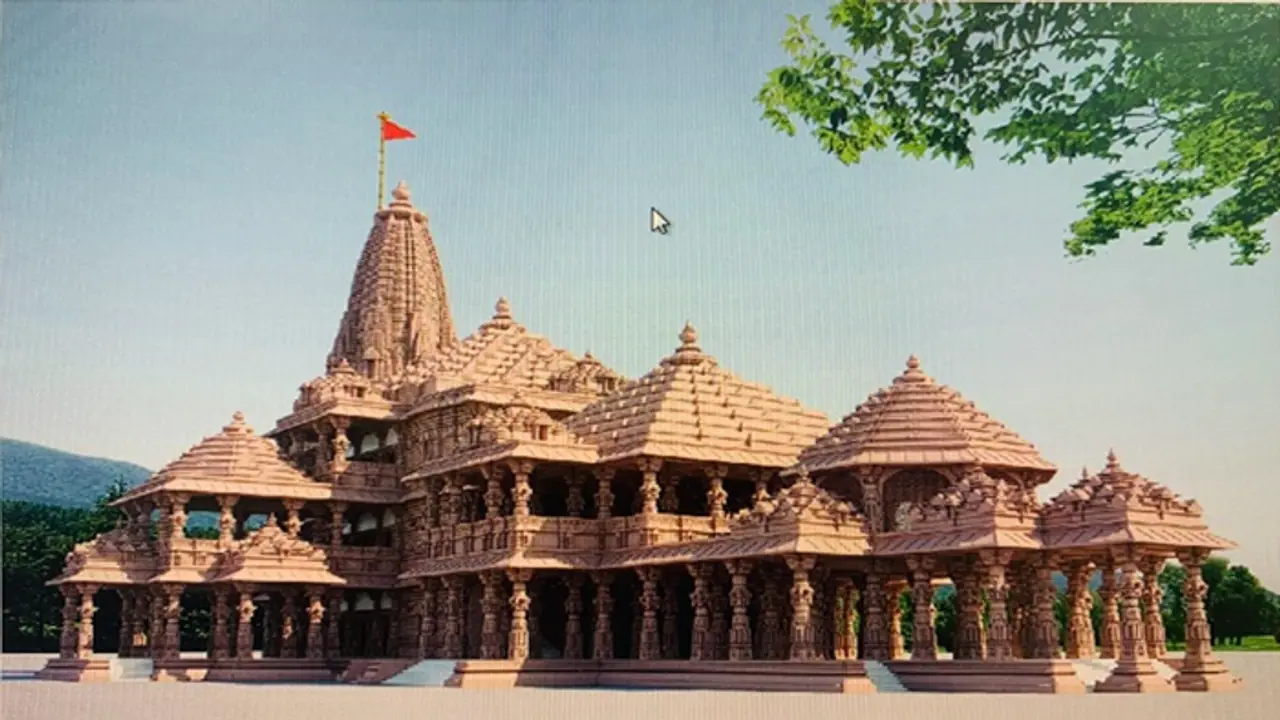"I am fortunate that I will also be a witness to this auspicious occasion. The Lord has made me an instrument to represent all the people of India during the consecration," Prime Minister Modi said.
Prime Minister Narendra Modi has started a special 11-day ritual leading up to the Pran Pratishtha ceremony in the Ram Temple in Ayodhya. In adherence to the intricate guidelines outlined in the scriptures, the consecration of a deity's idol is a meticulous and elaborate process. A set of detailed rules is provided, mandating their observance several days preceding the consecration.

Demonstrating his deep devotion to Lord Ram, the Prime Minister is approaching the consecration of the Ram temple as a form of spiritual practice. Despite the demanding nature of his schedule and responsibilities, the Prime Minister has resolved to meticulously adhere to all the rules and penances specified in the scriptures on and before the day of Pran Pratistha. In pursuit of this commitment, the Prime Minister has started the ritual of observing Yama-Niyam for a span of 11 days leading up to the consecration. Dev Pratishtha, described as the ritual of instilling divine consciousness into a physical idol, entails specific fasting rules outlined in the scriptures.
In his daily routine, the Prime Minister consistently follows practices such as Brahmamuhurta Jagran, Sadhana, and a Satvik diet. However, in reverence to the consecration ritual, the Prime Minister has chosen to observe a strict fast with unwavering penance for the entire 11-day period.
In a post in Hindi on X (formerly Twitter) Prime Minister Modi said, "Only 11 days are left for the consecration of Ramlala in Ayodhya. I am fortunate that I will also be a witness to this auspicious occasion. The Lord has made me an instrument to represent all the people of India during the consecration. Keeping this in mind, I am starting a special ritual of 11 days from today. I am seeking blessings from all the people. At this moment, it is very difficult to express my feelings in words, but I have tried from my side."
With the Ram Temple inauguration in Ayodhya set for January 22, extensive preparations are in progress, creating an air of anticipation and excitement. Vedic rituals for the consecration ceremony are scheduled to commence on January 16, lasting for seven days leading up to the main event. Priest Lakshmi Kant Dixit from Varanasi will lead the crucial rituals on January 22, culminating in the installation of the grand temple's idol, an event expected to be graced by Prime Minister Modi.
This auspicious occasion has attracted widespread attention, with numerous VVIP guests from both India and abroad receiving invitations to partake in the historic event.
In light of the upcoming sacred 'Pran Pratishta' ceremony, the Uttar Pradesh government has rolled out an extensive plan, incorporating advanced security and traffic management measures. The Integrated Traffic Management System (ITMS) has been synchronized with 1500 public CCTV cameras throughout the city, ensuring vigilant surveillance.
To manage the influx of attendees, the public is advised that only individuals invited by the Shri Ram Janmabhoomi Teerth Kshetra Trust will be granted entry from January 20 to 22. The authorities have put road and train arrangements in place to facilitate smooth transportation.
What is Pran Pratishta?
The term 'Pran Pratishta' refers to a sacred Hindu ritual performed to invoke a deity into an idol, rendering it sacred or divine. The term 'pran' translates to life, while 'pratishtha' means 'establishment.' Therefore, 'Pran Pratishta' signifies the 'establishment of the life force' or the 'bringing to life' of the deity.
Upon completion of the 'Pran Pratishta' ritual, the idol transforms into a deity capable of receiving prayers and bestowing blessings upon worshippers.
